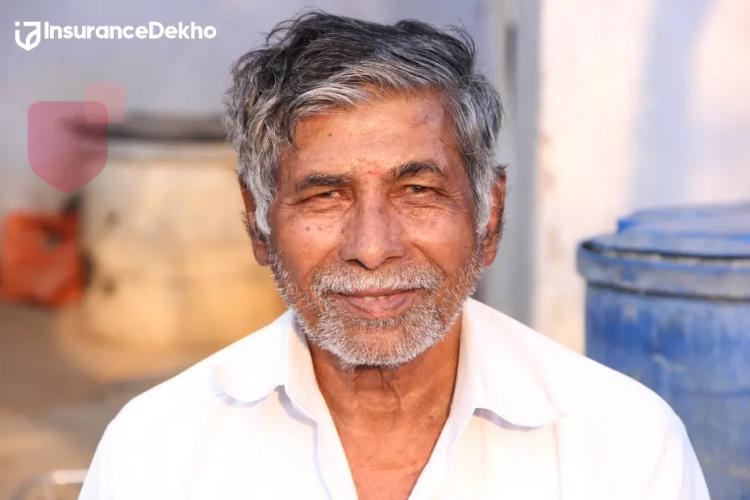Are you thinking about becoming an insurance agent? You're not the only one! Each year many people in India choose to join the insurance industry. The flexibility, money-making chances, and the chance to help families safeguard their financial future draw them in. But before you can start selling insurance policies, you must take one key step: you need to pass the IRDAI insurance agent exam.
This article will explain the exam syllabus and the frequently asked questions and how you can get ready for it. Even if you've just finished your 10th standard and want to start a career or make some extra money, this guide will help you.
IRDAI Exam Basics
What is the IRDAI Exam?
The IRDAI exam certifies people to work as licensed insurance agents in India. It checks if you know the basics about different insurance types, how to sell them, rules to follow, doing the right thing, and taking care of customers.
When you pass this test, you can sell life, health, and general insurance. You'll be a certified agent, or what they call a POSP (Point of Sales Person).
Must read: IRDAI Insurance Agent Exam 2025: Eligibility, Registration & Syllabus
IRDAI Exam Syllabus
Key Syllabus Zones:
|
Topic |
Concepts Covered |
|
Principles of Insurance |
Good faith, insurable interest, indemnity, contribution, subrogation |
|
Insurance Products |
Term plan, ULIPs, Endowment, Health, General insurance |
|
Risk & Hazard Management |
Types of risk, natural & human perils, moral hazard |
|
Selling Techniques |
Prospecting, identifying needs, closing sales, follow-ups |
|
Regulatory Guidelines |
Code of conduct, licensing, claim handling, grievance redressal |
Frequently Asked Questions in the IRDAI Exam
Here are some frequently asked concepts with examples to help you prepare:
1. What is the role of IRDAI?
IRDAI is the regulatory authority for the insurance industry in India. It regulates insurers, licenses agents, protects policyholders’ rights, and ensures fair play across all insurance transactions.
2. What happens if an agent mis-sells a policy?
If an agent gives wrong information or hides facts just to sell a policy, it’s considered mis-selling. IRDAI can cancel their license or take legal action. Agents must follow ethical practices.
3. What’s the difference between Life and General Insurance?
-
Life Insurance: Covers human life, pays out on death or after a specific term.
-
General Insurance: Covers assets like vehicles, health, property, or travel against risks like fire, theft, or accidents.
4. What is a ULIP?
A Unit Linked Insurance Plan gives life cover and investment returns. A part of your premium is invested in equity or debt funds, and the rest covers insurance.
5. What is a Peril in insurance?
In insurance, a peril is an event that can cause damage to insured property. Essentially, a peril is the "what" that leads to a claim, like a fire, theft, etc.
6. What is the Proximate Cause?
It refers to the nearest or direct cause of loss in a claim. Example: A fire caused by an electrical short circuit—the short circuit is the proximate cause.
7. What is a Moral Hazard?
It’s when someone behaves carelessly because they have insurance. Example: Leaving a bike unlocked thinking insurance will pay if it’s stolen.
8. What is the Free-Look Period?
Buyers have a 15-day trial period after purchasing a policy. If they don’t like the terms, they can cancel it and get a refund (minus some charges).
9. What does the first premium receipt mean?
It means the policy is now active. The insurer has accepted the proposal, and the coverage has begun.
10. What is Section 45 of the Insurance Act?
If a life insurance policy is older than 3 years, the insurer cannot reject a claim due to misstatements or wrong info in the application, unless fraud is proven.
11. What is Sum Assured and Premium?
-
Sum Assured: The guaranteed amount paid on death or maturity by the insurer.
-
Premium: The amount paid by the policyholder to keep the policy active, monthly, yearly, or as a single payment.
12. What is an Endowment Policy?
It offers both insurance and savings. If the insured person survives the policy term, they get a lump sum maturity amount. If they die, the nominee gets the sum assured.
13. What are Riders in insurance?
Riders are extra benefits added to a base policy. Examples: Accidental death rider, critical illness rider, and waiver of premium.
14. What is Nomination in insurance?
Nominee is the person who receives the insurance amount in case of the policyholder’s death. It must be declared while taking the policy.
15. Why is insurance important in India?
Insurance helps in financial protection, reduces out-of-pocket expenses, and builds trust in emergencies. With rising medical and accident risks, insurance is no longer optional; it’s essential.
You can find relevant IRDAI exam related information here
-
The Ultimate Guide to IC38 - IRDAI Life Insurance Agent Exam: Paperback (E-Book)
Preparation Tips
-
Read IC38 material daily and take notes
-
Practice mock tests
-
Revise insurance glossary to get better at understanding the basics of insurance
-
Ask mentors to clear doubts via online support or forums.
-
Don’t rush. Plan at least 5–7 days for preparation.
Ready to Become an Insurance Agent?
The IRDAI exam isn't hard. If you have good study materials and practice, you can become a certified insurance advisor, no matter where you're from—a small town or a big city.
If you're new to the field or want to make some extra money on the side, this exam can help you start a career that's flexible, steady, and has room to grow. Income: passing this exam can open doors to a flexible, stable, and growing career.






